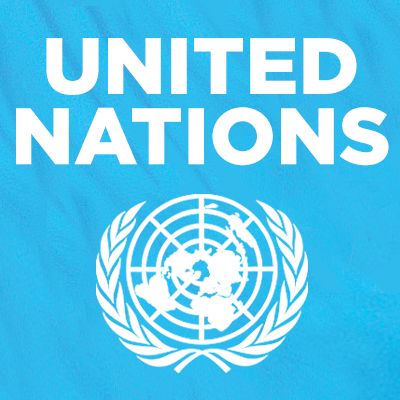- Home
- Medical news & Guidelines
- Anesthesiology
- Cardiology and CTVS
- Critical Care
- Dentistry
- Dermatology
- Diabetes and Endocrinology
- ENT
- Gastroenterology
- Medicine
- Nephrology
- Neurology
- Obstretics-Gynaecology
- Oncology
- Ophthalmology
- Orthopaedics
- Pediatrics-Neonatology
- Psychiatry
- Pulmonology
- Radiology
- Surgery
- Urology
- Laboratory Medicine
- Diet
- Nursing
- Paramedical
- Physiotherapy
- Health news
- Fact Check
- Bone Health Fact Check
- Brain Health Fact Check
- Cancer Related Fact Check
- Child Care Fact Check
- Dental and oral health fact check
- Diabetes and metabolic health fact check
- Diet and Nutrition Fact Check
- Eye and ENT Care Fact Check
- Fitness fact check
- Gut health fact check
- Heart health fact check
- Kidney health fact check
- Medical education fact check
- Men's health fact check
- Respiratory fact check
- Skin and hair care fact check
- Vaccine and Immunization fact check
- Women's health fact check
- AYUSH
- State News
- Andaman and Nicobar Islands
- Andhra Pradesh
- Arunachal Pradesh
- Assam
- Bihar
- Chandigarh
- Chattisgarh
- Dadra and Nagar Haveli
- Daman and Diu
- Delhi
- Goa
- Gujarat
- Haryana
- Himachal Pradesh
- Jammu & Kashmir
- Jharkhand
- Karnataka
- Kerala
- Ladakh
- Lakshadweep
- Madhya Pradesh
- Maharashtra
- Manipur
- Meghalaya
- Mizoram
- Nagaland
- Odisha
- Puducherry
- Punjab
- Rajasthan
- Sikkim
- Tamil Nadu
- Telangana
- Tripura
- Uttar Pradesh
- Uttrakhand
- West Bengal
- Medical Education
- Industry
UN launches strategy for health of women, children

United Nations: The UN launched an ambitious public-private strategy to end preventable deaths of women, children and adolescents.
UN launched an initial commitment of $25 billion for the next five years to provide life-saving treatments, from immunisations to perinatal care, Xinhua news agency reported.
The global strategy for women's, children's and adolescents' health includes new policies and partnership from 40 countries and more than 100 international organisations, philanthropic foundations, UN agencies, civil society and the private sector.
"The strategy, which I am proud to launch today, will help to build resilient and healthy societies," said UN Secretary-General Ban Ki-moon.
"We have shown that our partnership can yield concrete results," Ban said. "I, and the entire UN system, remain dedicated to saving and improving the lives of the most vulnerable amongst us."
The commitments include $3.3 billion from the US, $2.6 billion from Canada, $2.5 billion from Sweden, $1.3 billion from Germany, $420 million from Norway, $326 million from the Netherlands, and $300 million from South Korea.
Earlier this year, Ban said remarkable progress had already been made on preventing mother-to-child HIV transmission, increasing availability of oral rehydration therapy for treating infant diarrhoea, exclusive breastfeeding and in post-natal care for women, as well as increasing professional maternity care, family planning, childhood vaccinations, and prenatal care.
Saturday's announcement came after adoption of the 2030 Agenda for Sustainable Development by world leaders on Friday, comprising 17 Sustainable Development Goals (SDGs) that aim to wipe out extreme poverty, fight inequality and tackle climate change over the next 15 years.
UN launched an initial commitment of $25 billion for the next five years to provide life-saving treatments, from immunisations to perinatal care, Xinhua news agency reported.
The global strategy for women's, children's and adolescents' health includes new policies and partnership from 40 countries and more than 100 international organisations, philanthropic foundations, UN agencies, civil society and the private sector.
"The strategy, which I am proud to launch today, will help to build resilient and healthy societies," said UN Secretary-General Ban Ki-moon.
"We have shown that our partnership can yield concrete results," Ban said. "I, and the entire UN system, remain dedicated to saving and improving the lives of the most vulnerable amongst us."
The commitments include $3.3 billion from the US, $2.6 billion from Canada, $2.5 billion from Sweden, $1.3 billion from Germany, $420 million from Norway, $326 million from the Netherlands, and $300 million from South Korea.
Earlier this year, Ban said remarkable progress had already been made on preventing mother-to-child HIV transmission, increasing availability of oral rehydration therapy for treating infant diarrhoea, exclusive breastfeeding and in post-natal care for women, as well as increasing professional maternity care, family planning, childhood vaccinations, and prenatal care.
Saturday's announcement came after adoption of the 2030 Agenda for Sustainable Development by world leaders on Friday, comprising 17 Sustainable Development Goals (SDGs) that aim to wipe out extreme poverty, fight inequality and tackle climate change over the next 15 years.
Meghna A Singhania is the founder and Editor-in-Chief at Medical Dialogues. An Economics graduate from Delhi University and a post graduate from London School of Economics and Political Science, her key research interest lies in health economics, and policy making in health and medical sector in the country. She is a member of the Association of Healthcare Journalists. She can be contacted at meghna@medicaldialogues.in. Contact no. 011-43720751
Next Story


